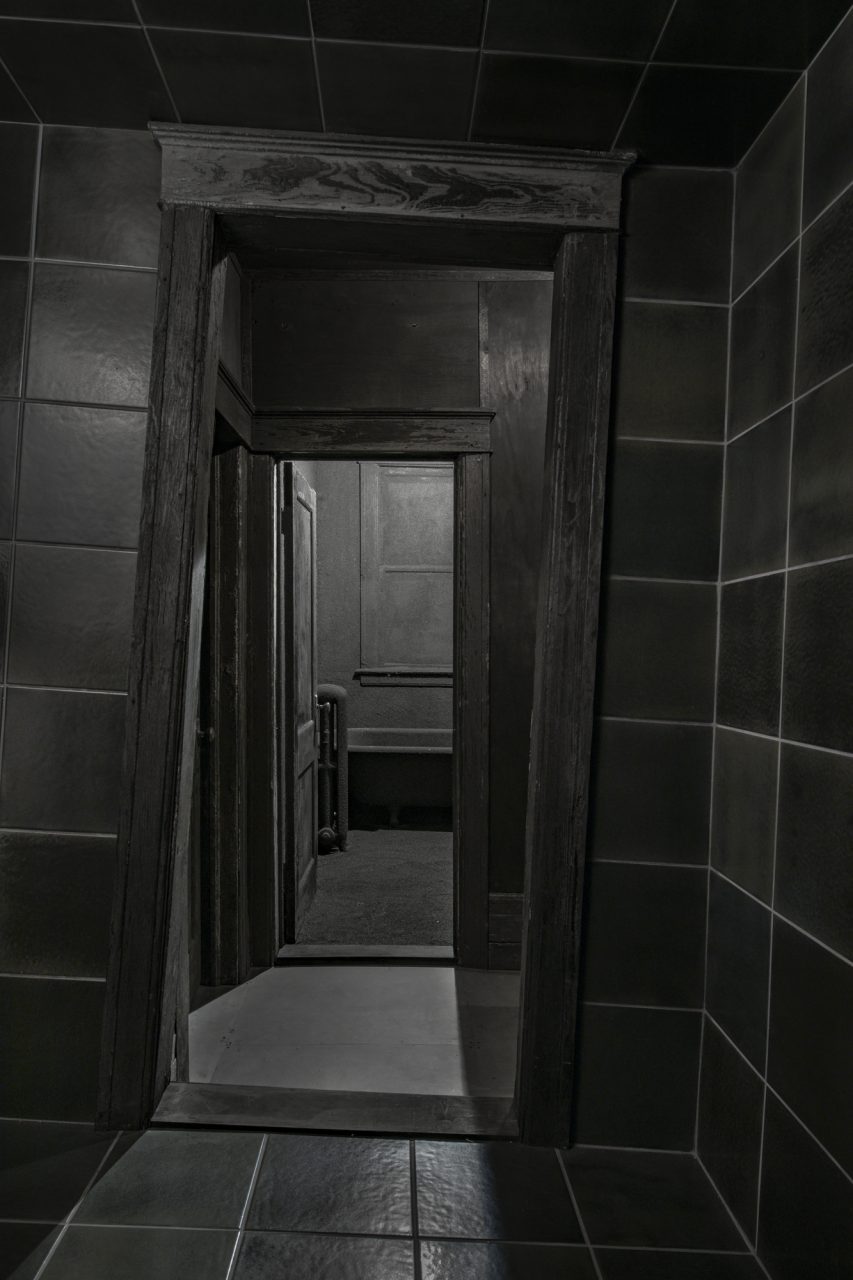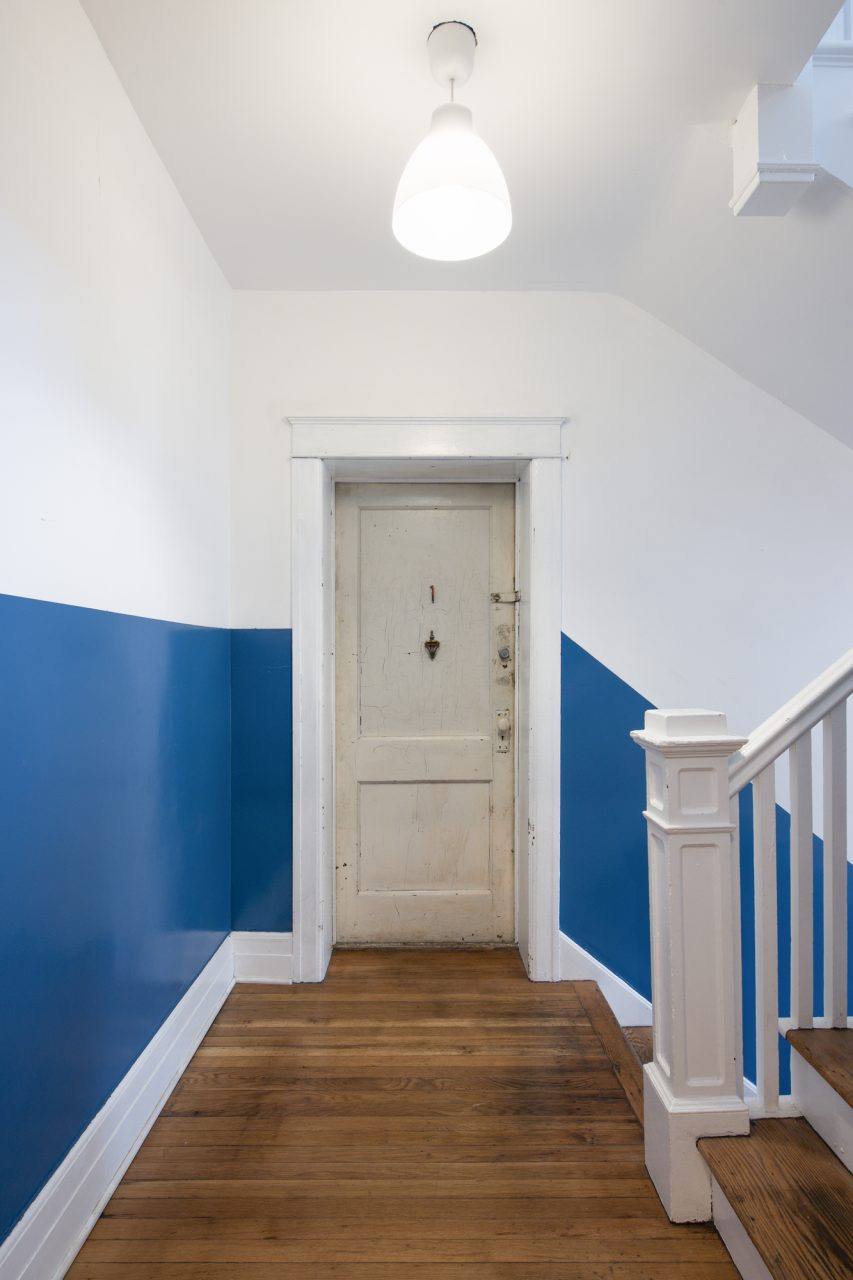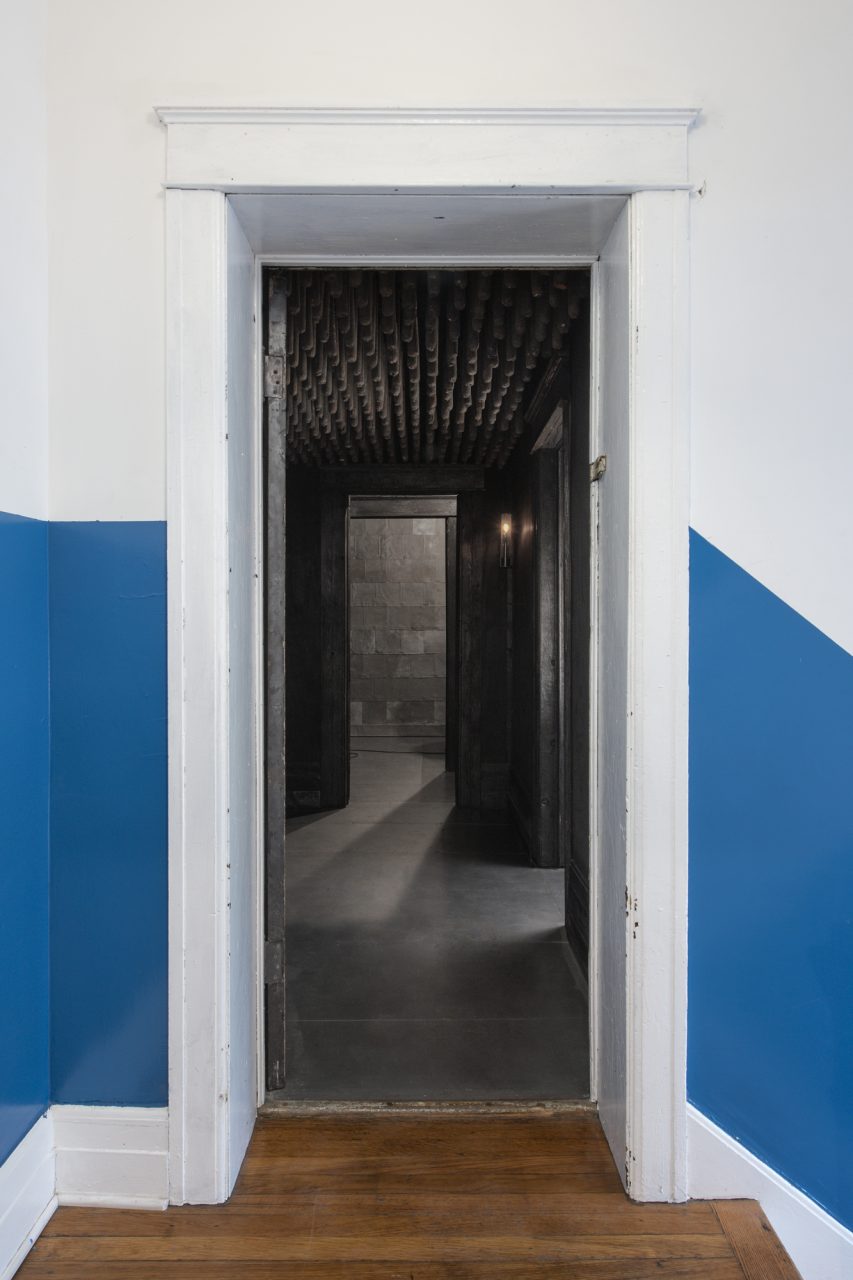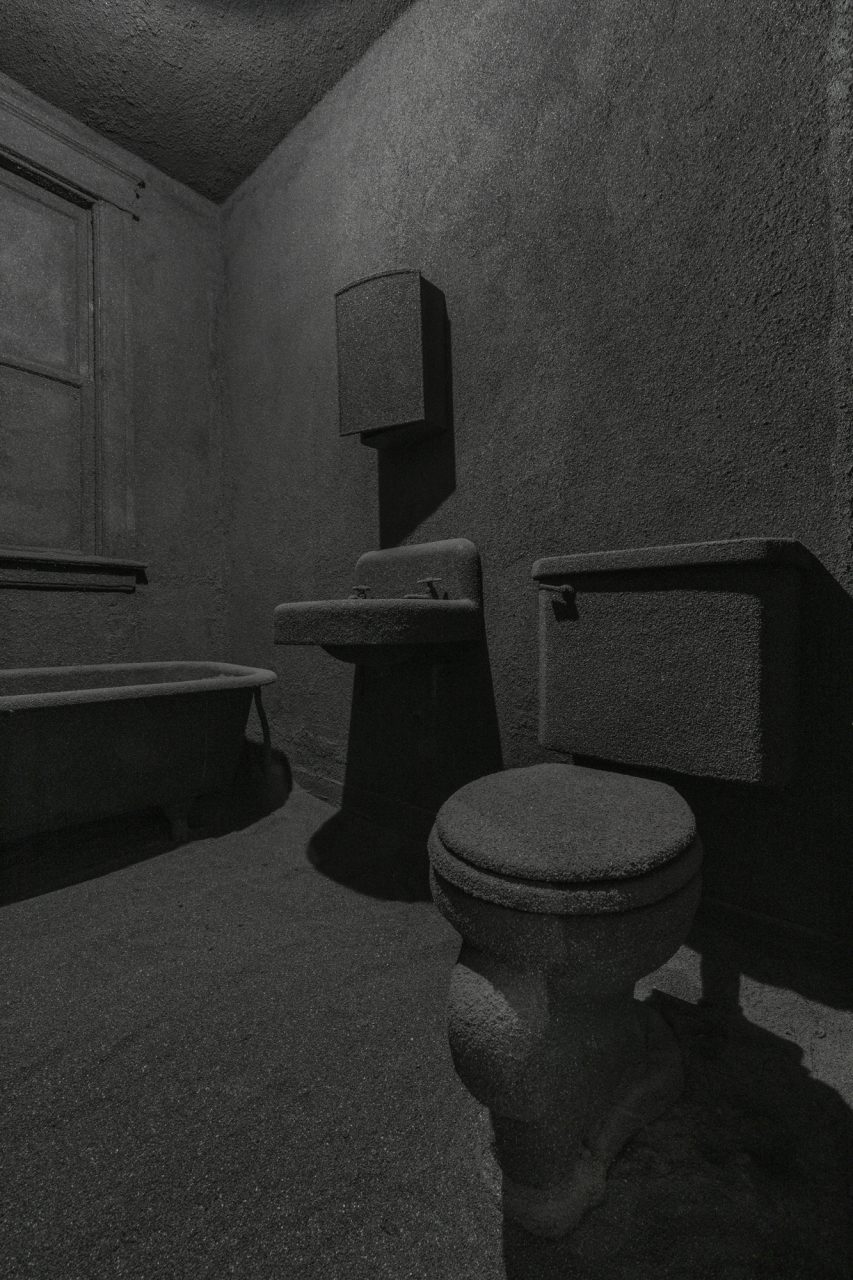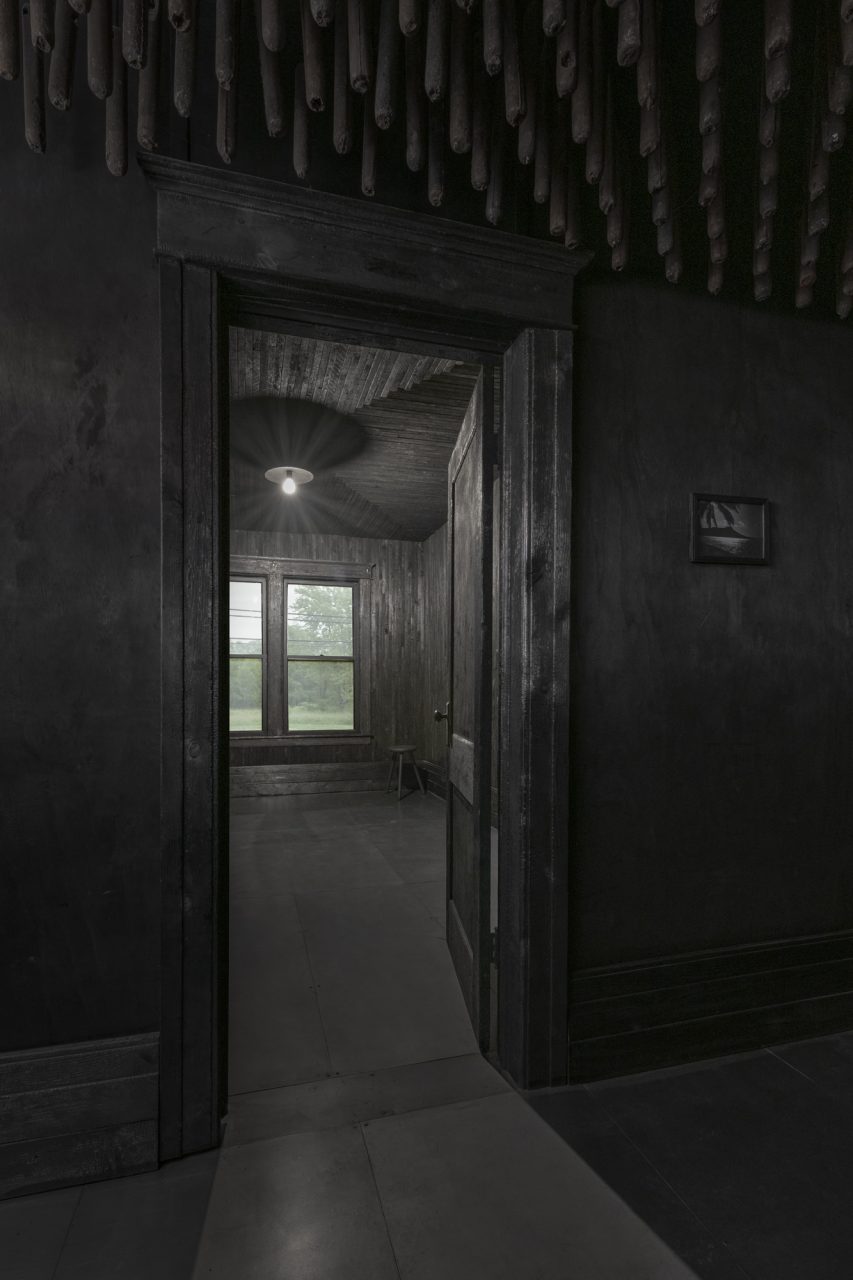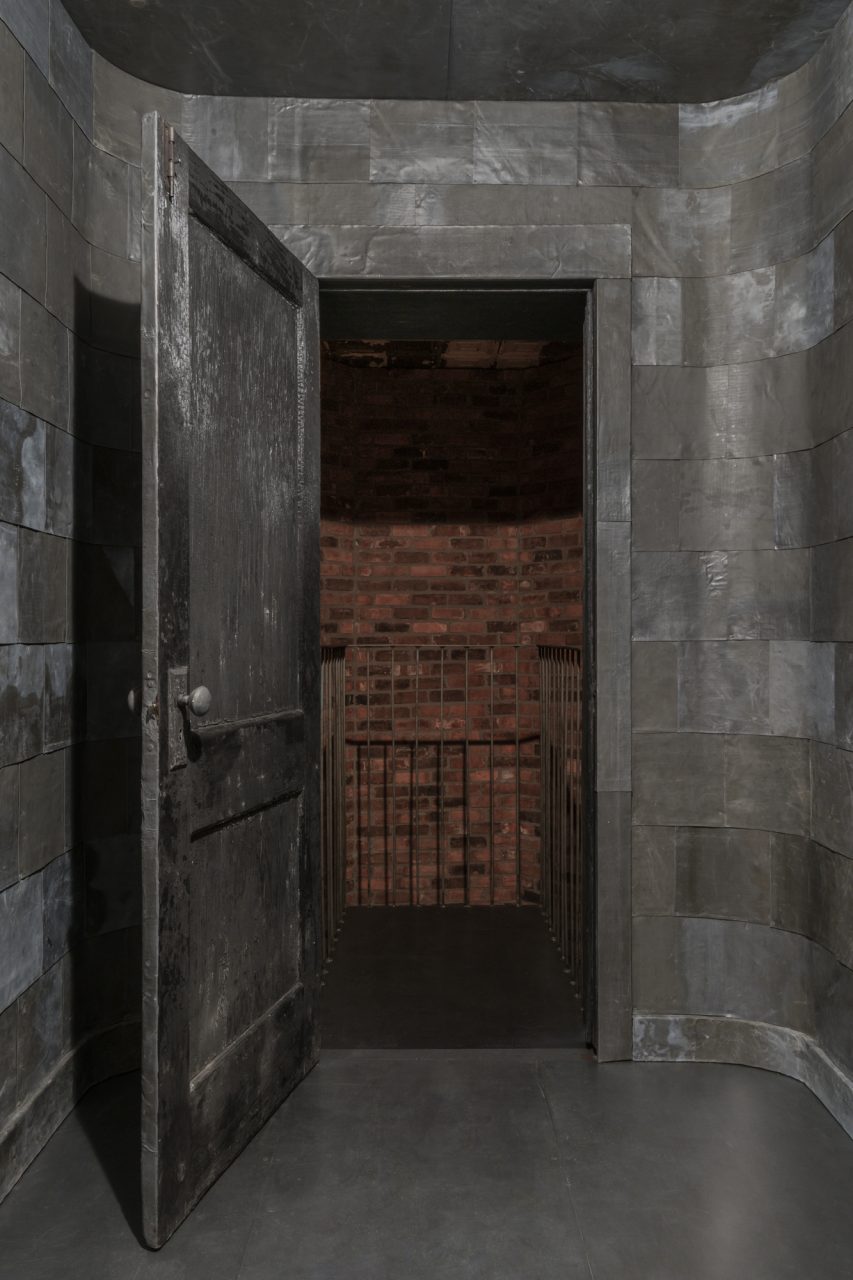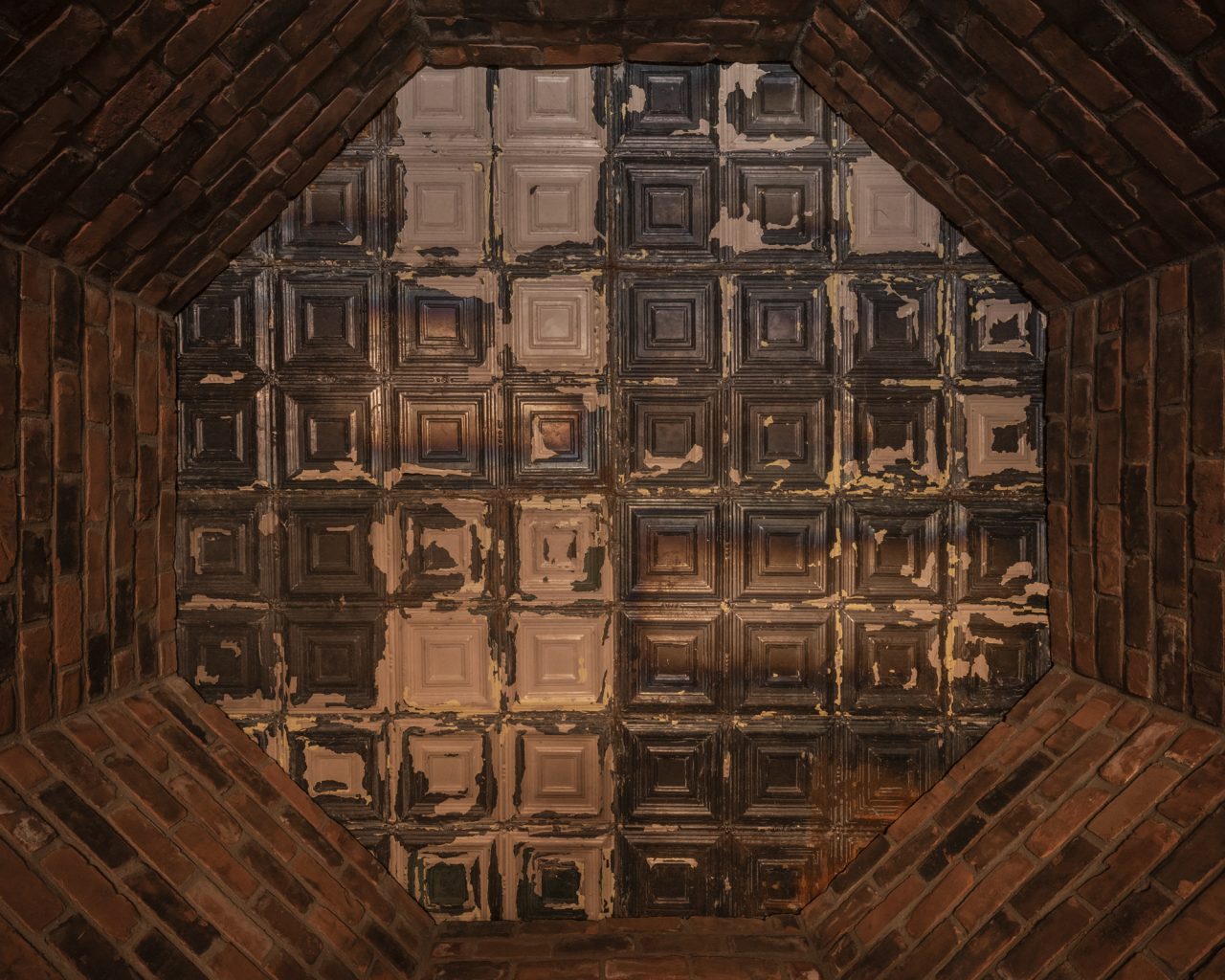Artist Anders Ruhwald delves into interiority with the permanent installation Unit 1: 3583 Dubois. Located in a desolate area of Detroit in a 7,000 square foot brick apartment-building, the complete installation consists of eight full-sized rooms and corridors inside one apartment. Enveloped entirely in black, the installation is otherworldly.
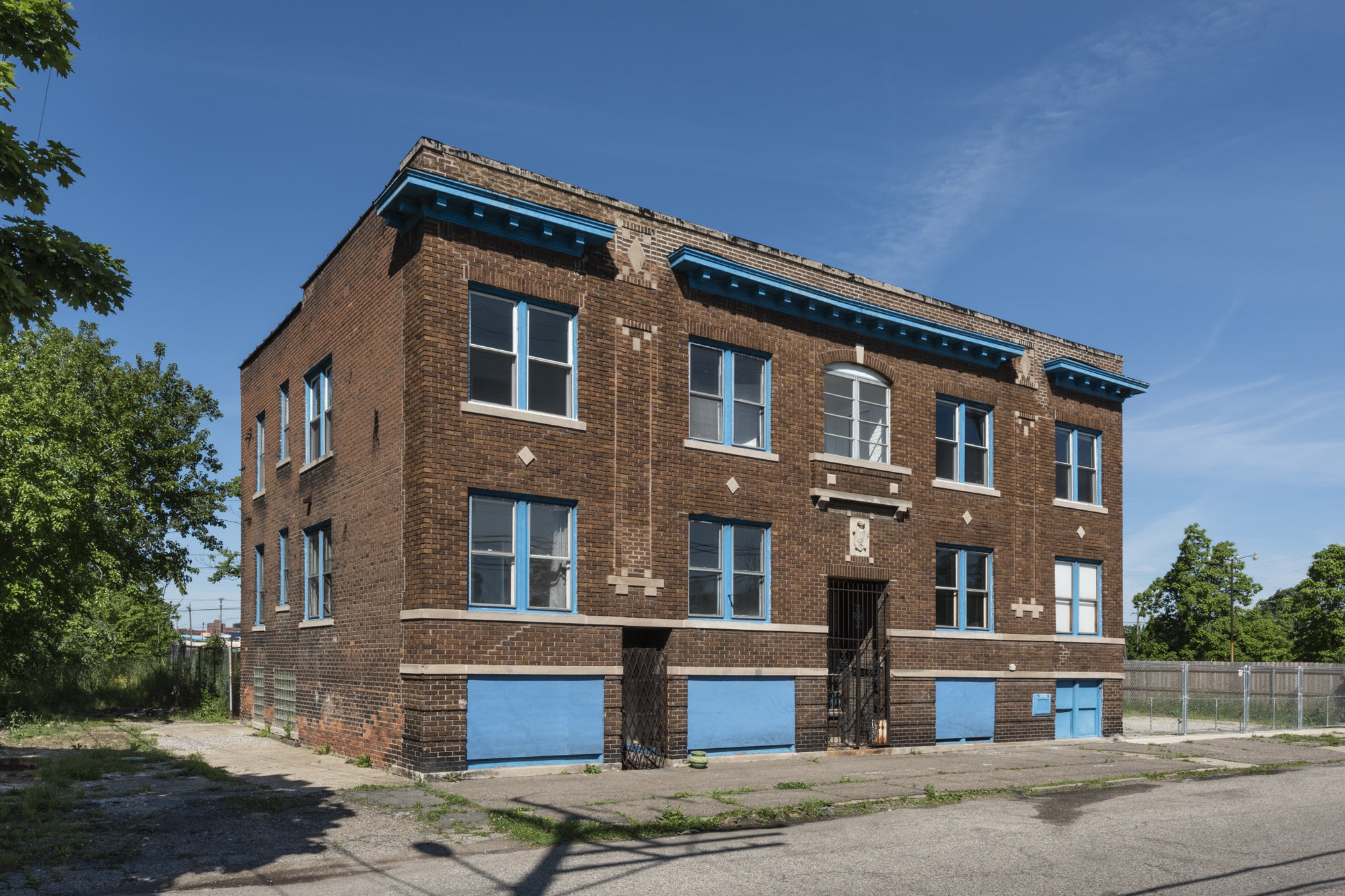
The interior appears engulfed by fire though upon closer inspection the space is carefully crafted. The installation embraces the transformative qualities of fire as destructive and constructive in relation to the domestic, arguably the most intimate space. Using charred wood, ash, molten glass, steel, lead, tiles, bricks with sash window weights, bombs, and a photograph among other found things in the building and neighborhood, Ruhwald creates an after-image of what once was and at the same time creates a dream-like thought of what is to come. The work is not about Detroit “ruin,” but offers the possibility to understand the city’s decline as a transformative process.
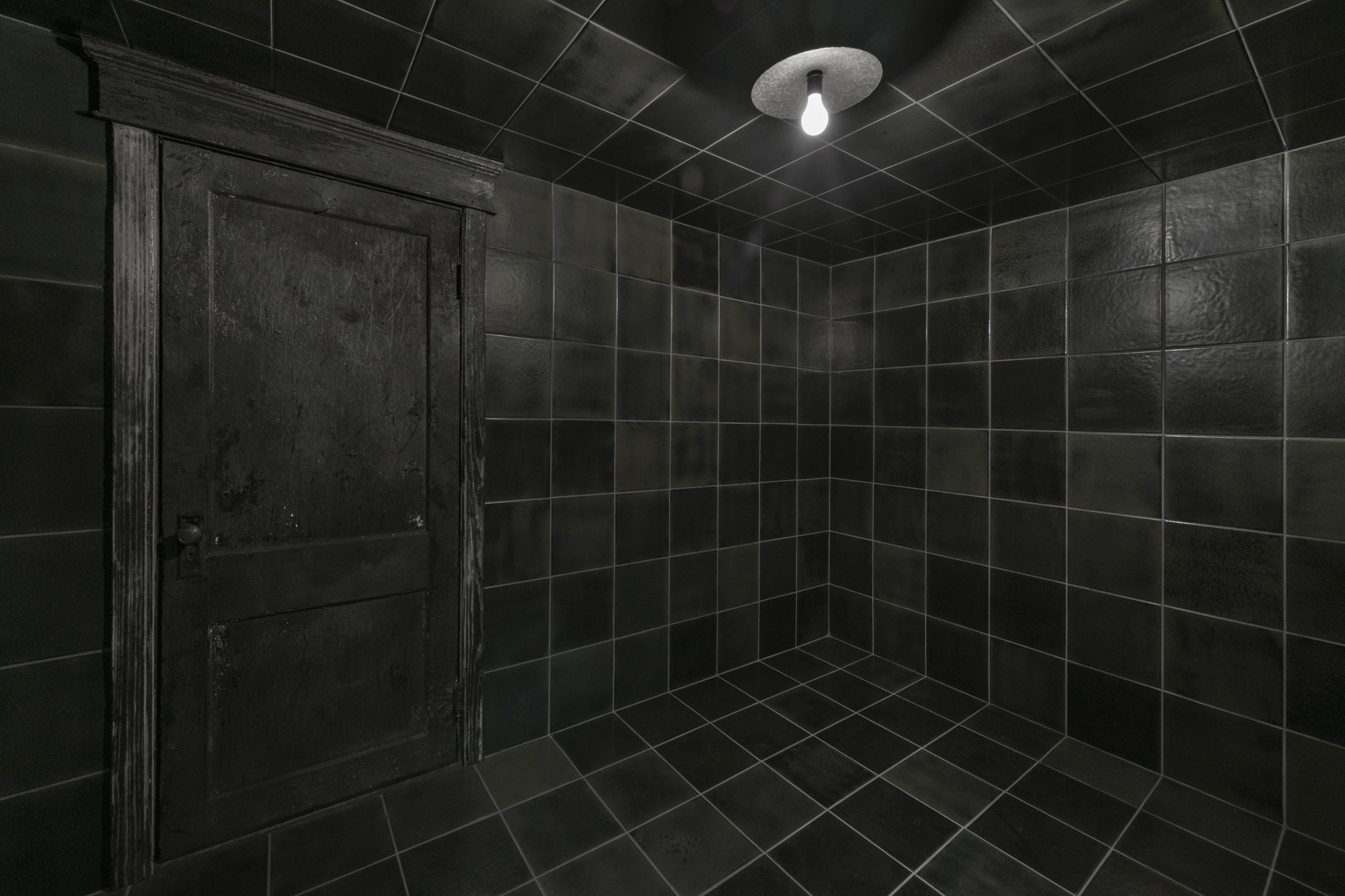
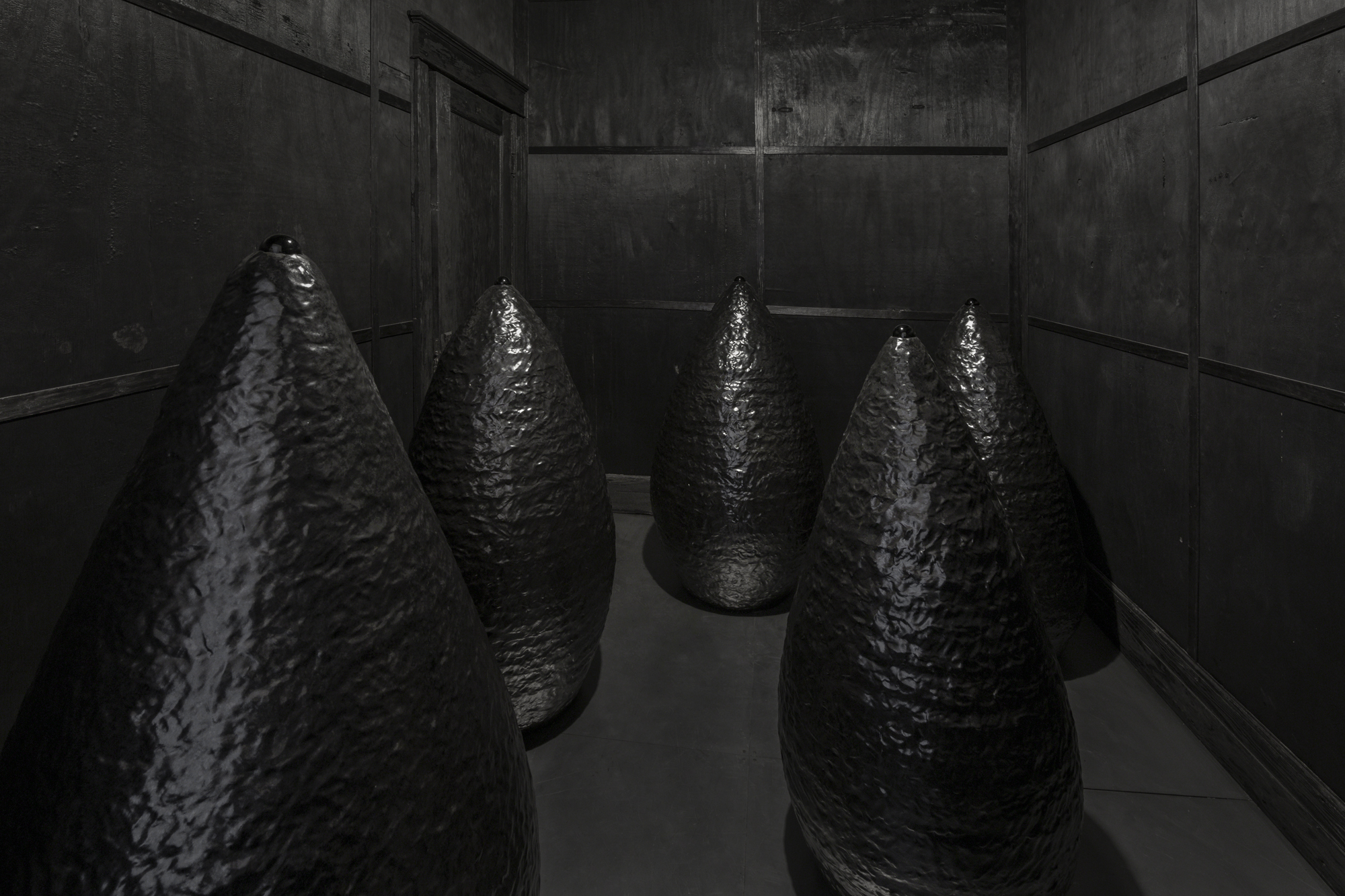
Ruhwald, a ceramic artist from Denmark who now works in Chicago and Detroit, bought the vacant building in 2014. The address in the title of the exhibition, 3583 Dubois, no longer exists and was reassigned as 2170 Mack Avenue. What seems like a subtle change underscores a metaphoric loss of place and history. Ruhwald repositions the building’s identity and Unit 1: 3583 Dubois intertwines its past, present, and future.
The project has unfolded over the last five years with appearances in Cleveland and Chicago before permanently opening in June in Detroit. The installation runs concurrently to Material Detroit, a public art series accompanying Landlord Colors: On Art, Economy, and Materiality curated by Laura Mott, Senior Curator at Cranbrook Art Museum. Tours of Unit 1: 3583 Dubois are available on Thursdays and Saturdays.
